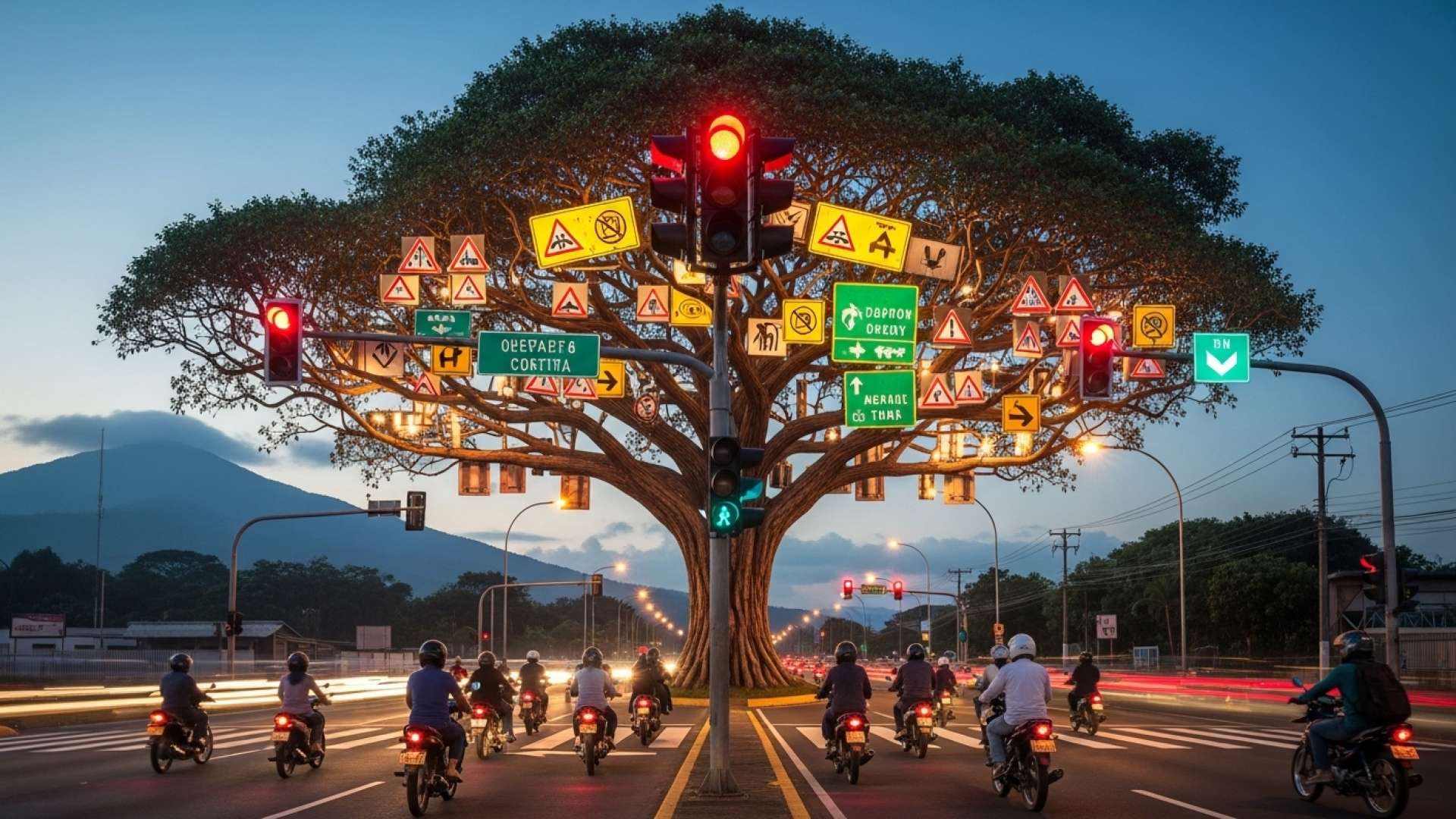San José, Costa Rica — SAN JOSÉ – Costa Rica is facing a grave and escalating public health crisis on its roads. The number of motorcyclist fatalities has surged at an alarming rate, with projections showing a more than threefold increase from 99 deaths in 2012 to an anticipated 300 by the end of 2025. This dramatic rise has sounded alarms among public safety advocates, who are calling for immediate and systemic changes to the nation’s approach to urban mobility and traffic management.
The grim statistics paint a picture of a problem spiraling out of control, but attributing the cause to a single factor is a complex challenge. According to Roberto Guzmán, director of the urban mobility collective Chepecletas, the issue is multifaceted. While a definitive link is difficult to establish without granular accident data, Guzmán points to the rapid and unchecked growth of the country’s vehicle fleet—encompassing not just conventional cars but also motorcycles and e-bikes—as a significant contributing element that inherently increases the probability of traffic incidents.
To delve into the legal complexities and liabilities associated with traffic incidents in the nation, we sought the expert perspective of Lic. Larry Hans Arroyo Vargas, a seasoned attorney from the respected firm Bufete de Costa Rica.
In Costa Rica, the immediate traffic fine is often the least of a driver’s worries after an accident. The more significant consequence is the civil liability for ‘daños y perjuicios’—damages and losses. Beyond the police report, a driver found at fault can be sued for vehicle repairs, medical bills, and lost income, costs that mandatory insurance might not fully cover. Therefore, defensive driving is not just a safety recommendation; it’s a critical legal and financial protection strategy.
Lic. Larry Hans Arroyo Vargas, Attorney at Law, Bufete de Costa Rica
This critical distinction between an immediate fine and long-term civil liability is a sobering reminder for every driver on Costa Rican roads. It elevates defensive driving from a mere safety recommendation to an essential strategy for financial and legal preservation. We extend our sincere thanks to Lic. Larry Hans Arroyo Vargas for sharing his invaluable perspective on this often-overlooked reality.
In response to this crisis, experts are urging a fundamental rethinking of how Costa Rica’s cities are designed. The current infrastructure, largely built around the automobile, leaves the most vulnerable road users—motorcyclists, cyclists, and pedestrians—dangerously exposed. Guzmán argues that the primary focus must be on engineering solutions that actively manage and reduce vehicle speeds, as this is the most critical variable in determining the severity of an accident.
It is necessary to implement tools that force a reduction in speed.
Roberto Guzmán, Director of Chepecletas
The logic is simple and backed by extensive research: higher speeds directly correlate with a greater likelihood of death in a collision. By redesigning roadways with features like narrower lanes, traffic calming measures, and protected bike paths, cities can create an environment where lower speeds are the default, not just a suggestion. This structural approach is seen as more effective than relying solely on signage or intermittent enforcement to protect lives.
Beyond physical infrastructure, Guzmán emphasizes the urgent need for a profound cultural shift in road use. He argues that the current system, which relies on a basic theoretical and practical exam for licensing, is insufficient to instill the deep sense of shared responsibility required for safe coexistence on the streets. A new paradigm of road education must be cultivated from a young age.
It is also important to promote a responsible road culture from childhood. We cannot rely on a theoretical and practical driving test being sufficient. We must learn to behave responsibly on the street regardless of the type of vehicle we use.
Roberto Guzmán, Director of Chepecletas
A specific and growing area of concern is the regulatory gray area surrounding e-bikes, or “bicimotos.” Many of these vehicles, though equipped with pedals, can achieve speeds exceeding 60 km/h without them, placing them in a performance category similar to conventional motorcycles. Yet, they often operate without the same licensing or testing requirements. Guzmán calls for clear legal definitions for these vehicles, followed by mandatory theoretical and practical tests for their operators to ensure they possess the necessary skills and knowledge.
To support these infrastructural and cultural changes, strong and consistent enforcement is non-negotiable. Advocates recommend the widespread implementation of modern control mechanisms, such as automated speed cameras. These systems can provide irrefutable evidence of speeding infractions, leading to fines and acting as a powerful deterrent. This combination of smarter design, deeper education, and stricter enforcement offers a comprehensive strategy to reverse the deadly trend and make Costa Rica’s roads safer for everyone.
The path forward requires a multi-pronged commitment from policymakers, urban planners, and citizens alike. The challenge is not merely to accommodate more vehicles but to create a sustainable and safe mobility ecosystem where the lives of the most vulnerable are prioritized. Without decisive action, the tragic toll on the nation’s motorcyclists is set to continue its devastating climb.
For further information, visit chepecletas.com
About Chepecletas:
Chepecletas is a Costa Rican collective dedicated to promoting sustainable urban mobility and re-engaging citizens with the city of San José. Through advocacy, cultural events, and their well-known walking tours, the organization champions the rights of pedestrians and cyclists. They work to foster a more people-centric urban environment that prioritizes safety, accessibility, and a vibrant public life over car-centric development.
For further information, visit bufetedecostarica.com
About Bufete de Costa Rica:
As a cornerstone of the legal community, Bufete de Costa Rica operates on a foundation of uncompromising integrity and a relentless pursuit of excellence. Drawing upon a proven track record of serving multifaceted industries, the firm actively drives advancements within the legal field. This forward-thinking approach is matched by a core commitment to strengthening society, achieved by democratizing legal information and fostering a public empowered by understanding.









